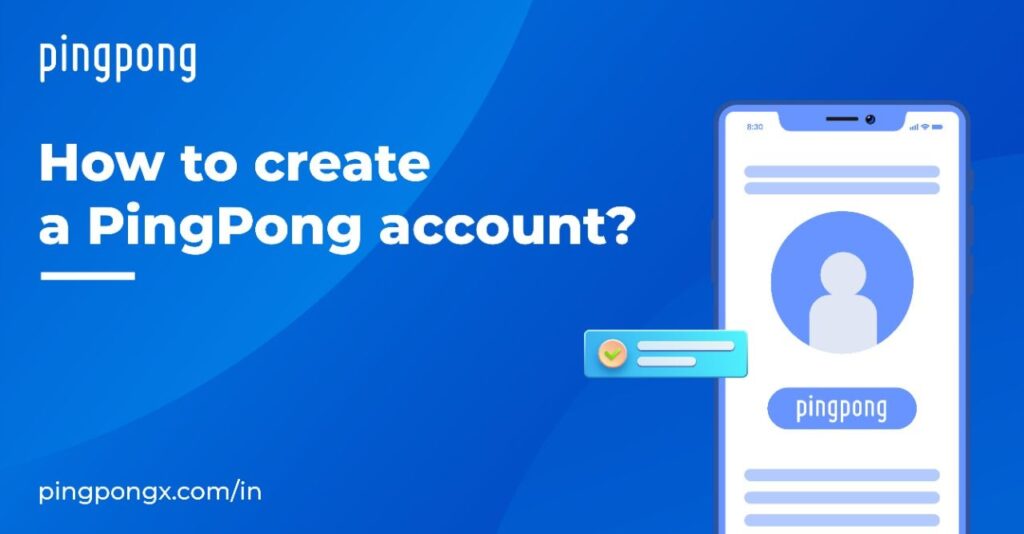As a cross-border e-commerce jianghu crawling and rolling eight years of "old gun", from the earliest use of PayPal was frozen funds, to watch PingPong from the little-known small platform into the industry, "top stream", this all the way to the collection of the painstaking history, can be written into a "cross-border e-commerce survival guide". This is a bitter history of collection, which can be written into a cross-border e-commerce survival guide. Today, we will openly talk about those things that foreign traders are most concerned about.

First encounter with PingPong: like digging up the "treasure" of cross-border payment collection.
I still remember that summer of 2016, I am for the Amazon store collection fees - 3% rate, 100,000 U.S. dollars in orders directly less than 3,000 knives, the equivalent of sending a foreigner a new iPhone for nothing. by chance in the seller group heard that "there is a platform named PingPong platform, the rate as long as 1%", half-believing half-suspicious registered account, the results from now on to open the door to a new world:
- The rates are cut directly in half.: For the same $100,000 order, the $2,000 savings in fees is enough to give the team a big leg up;
- Amazing speed of arrivalPingPong's fastest arrival is on the same day, which doubles the efficiency of capital turnover;
- Chinese customer service smells so good.: three o'clock in the middle of the night sudden order, call the customer service actually second answer, which in the foreign platform simply do not dare to think!
The most let me clap my thighs is that "divine operation" in 2018: the platform suddenly adjusted the policy, requiring sellers to provide localized collection accounts, see the European orders to yellow, PingPong timely launch of the "European local account" service, directly with the euro! Collections, not only to save the exchange loss, but also to deal with VAT compliance issues. That single earned 200,000 euros, and still remember the finance lady said, "the arrival of the account text message than a love letter is still happy".
Second, the depth of binding: from the collection tool to the business "partner".
As my business expanded to Southeast Asia, PingPong became my "game-breaker". 2022, I received an order from an Indonesian customer, who insisted on paying in Indonesian rupiah, but traditional banks would not accept small currencies. PingPong's "Southeast Asia Localization Solution" is just timely rain:
- Small Currencies: After opening an Rupiah account, you can directly receive local currency and convert it to USD in real time, reducing the exchange loss from 4% to 0.5%;
- Seamless Tax Refunds: Customs declaration vouchers are automatically generated and the tax refund is completed in 7 days, one month faster than the traditional process;
- Full local wallet coverage: Customers can pay with e-wallets such as OVO, LinkAja, etc., and the order conversion rate has increased by 30%!
In the last couple of years, I've also gotten hooked on their "FT Bill Pay" feature. When sending PI to European customers, the other party pays directly by credit card or Trustly wallet, the fastest 10 minutes to the account. Last week to the Belgian customer sent a 5000 euro order, the other clicked on the link to complete the payment in 3 minutes, this efficiency is like "hanged".
III. The "slots" of those years: love and blame
Of course, no platform is perfect, and there are things I love and hate about PingPong:
- License issue pending: Although there are European and American licenses, the domestic payment qualification has never landed, and occasionally there are still concerns about capital compliance;
- Exchange rate fluctuations in small currencies: The real-time exchange rate fluctuates a bit when exchanging currencies such as IDR and Thai Baht, so it would be nice to be able to lock in the exchange rate in advance;
- Occasionally, the system jerks.: Occasional lagging in the background when orders explode during peak season, I hope the tech team can work harder.
But honestly, over the years, we have watched PingPong evolve from a "single payment collection tool" to a "cross-border payment ecosystem" - from a product selection tool to a supply chain financial service, and from a B2B collection tool to 11 local accounts worldwide. From B2B payment collection to 11 local accounts around the world, I can feel that they are really listening to the voice of sellers. Like last year, I put forward a "hope to support the Mexican peso" proposal, this year actually on-line, this "being valued" feeling, stronger than anything else.
IV. Future outlook: looking forward to the next "disruption"
Recently, I chatted with friends in my circle and found that everyone's expectation of PingPong has long gone beyond "fast collection and low rates":
- Smarter exchange rate managementI think it would be great if you could set a "stop-loss point" on the exchange rate like you can with a stock program that automatically converts the exchange rate;
- More transparency in compliance services: I hope there will be regular updates on the progress of the license so that sellers can have more peace of mind;
- Closer ecological linkagesIf the collection data can be directly connected to the ERP system, the financial reconciliation can save half of the effort.
To be frank, cross-border e-commerce is like rowing a boat in the sea, and the payment platform is our "oar", PingPong may not be the most perfect one, but at least it let me see the ambition and sincerity of the "Chinese payment brand". When more and more foreigners start to use PingPong to pay, when we can use the local currency in Southeast Asia and Europe to travel freely, this feeling of "raising eyebrows" is more pleasant than earning two more businesses.
Finally, I would like to remind new sellers that cross-border collection is not "once and for all", and choosing a platform is like finding a partner, not only looking at the immediate rates and speed, but also looking at the long-term "growth". May we all find the reliable partner who "understands your needs and grows with you" in the cross-border world - just like PingPong for me.
(The experience in the text is based on real business scenarios, and the data is personal statistics for reference only)












